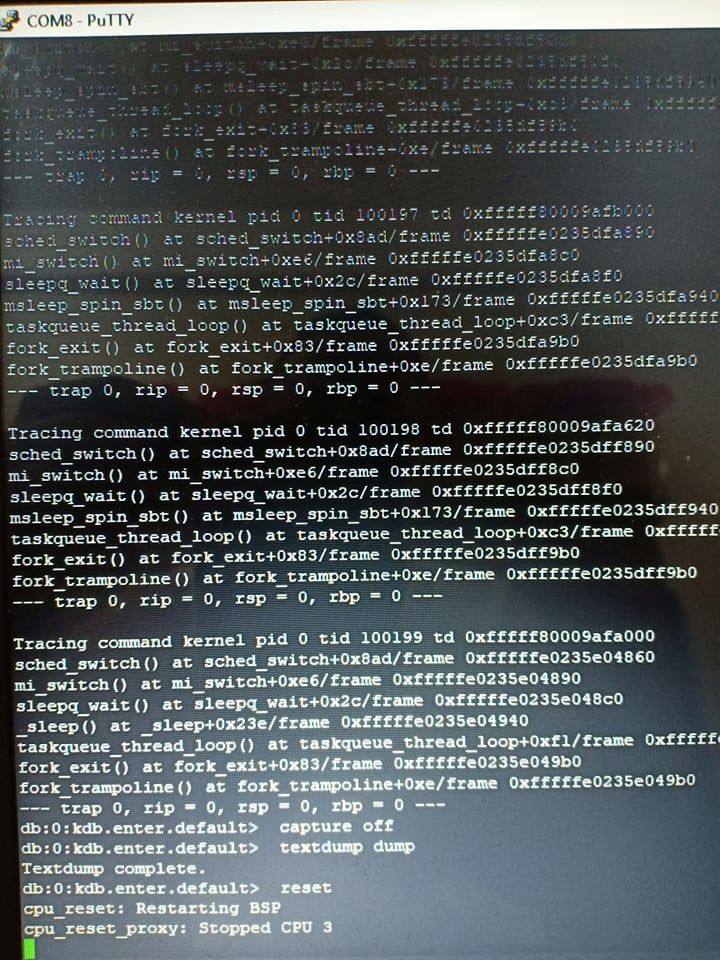keeps on rebooting
-
If a reboot didn't fix the issue, I would just reinstall pfSense.
-
re installation will surely stop the problem but i guess it wont be fixed.
=transferred the same ssd to an identical hardware and the same rebooting issue was duplicated
=pls see attached capture, i wanna see the root cause as we want to prevent the same error happening again -
I would bet on these two :
ufs_makeinode() at ufs_makeinode+0xa3/frame 0xfffffe0235e86580 ufs_create() at ufs_create+0x34/frame 0xfffffe0235e865a0which means to me : troubles making a file ...
-
troubles making a file? means?
-
That info isn't included in the dump.
It could be a file on a ram disk, or more common : a file on your 'hard' disk.
It could be as simple as : no more space or more usual : file system hosed (repair with fsck on boot) up until disk-starts-to-die. -
its a new system with 128gb transcend 370 series ssd. health was chcked via sentinal and it was 100% healthy
-
Yeah that looks like a filesystem issue. You should be able to recover that by manually running
fsck -y /a few times (at least 3) from single user mode.Steve
-
@stephenw10 weve replaced the SSD meantime but what if the problem comes back again
-
Easy !
1 ) if needed, shut down system properly. No power line ripping.
2) use an UPS and set it up so rule 1 applies when power goes away.edit : Your SSD isn't probably physically damaged, only logically.
Never heard or saw of 'chkdsk' before ?
Some command line commands are needed to put things in place again, as @stephenw10 mentioned. -
Yeah I doubt there is a problem with your SSD. The real question is what was causing the filesystem issue. It's almost always because the system lost power during writing the drive.
Steve
-
if its not a power issue, would there be a chance of a hardware issue?
-
How, according to you, could we know if something is wrong with your hardware ?
Bad sata cables, bad power supplies, all is possible.
-
Yes, it could be something else causing the drive write to fail mid-write. Bad SSD. Bad internal power. Bad cable.
I have seen bad SATA cables do some truly weird stuff, I would swap that out first if you have not already.Steve
